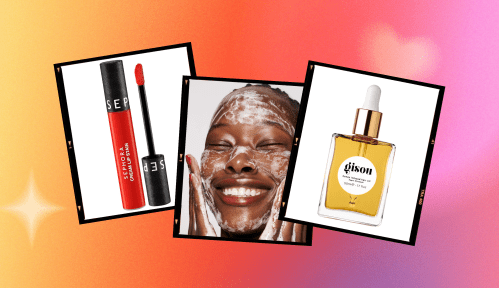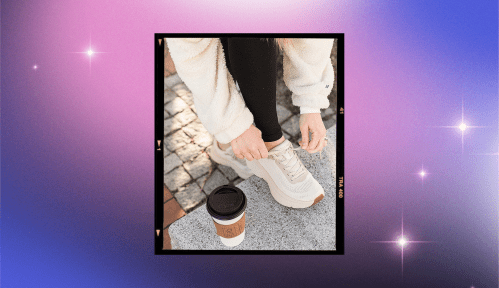Here’s a scenario that may sound familiar: After a not-so-great night’s sleep, you’re exhausted, delirious, and struggling to get through the day. As you sit staring blanking at your to-do list, someone tells a lame dad joke. Typically, you’d just roll your eyes and crack a fake smile, however, today you’re laughing so hard you’re crying and can’t seem to catch your breath, and are wondering: Why is everything funnier when I’m tired?
Experts in This Article
licensed psychologist and president and chief clinical officer at Deep Eddy Therapy
While you may be concerned about your sudden drop in your class of humor, know it’s not just you. There’s even a term for sleep-deprivation-induced fits of giggles: muffin point, according to the Urban Dictionary. It’s not necessarily the phrase a scientist would use to describe the phenomenon, per se, but psychologist Kyler Shumway, PsyD, says a lack of quality zzzs does make things feel funnier. (Research finds it also makes us feel like we’re drunk, FYI.)
“It starts with the brain, specifically the prefrontal cortex,” he explains, adding that one of its primary functions is to regulate emotions and inhibitions—this is why babies and children (whose prefrontal cortexes aren’t fully formed) are so easily amused. “In many ways, the prefrontal cortex works like the brake pedal for your emotions,” Dr. Shumway says. “Your nervous system is constantly reacting to the environment, and your prefrontal cortex has to decide whether to let the feelings out or not.”
But when we’re overtired, the brakes get faulty and our prefrontal cortexes don’t have as much control. “Eventually they give up, and whatever emotion is present—laughter, rage, or sobbing, etc.—it comes out,” Dr. Shumway says. So in a sense, having strong emotional reactions to small things, difficulty concentrating and focusing on tasks, anxiety, and depression, can all be indicators of sleep deprivation, he adds.
“Sleep deprivation is incredibly dangerous, both in the short and long term,” Dr. Shumway says. “People who are sleep deprived are less rational, perform worse on motor tasks, and cannot record memories properly.” He adds that things are even worse for those who suffer from chronic sleep deprivation. “They can experience a reduced immune system response, increased blood pressure and cardiovascular disease, decreased working memory and reaction times,” he says.
Conversely, research finds that those who are well-rested perform better at all these functions, tend to have an easier time regulating their emotions and moods, and are more alert.
What to do if you reach the muffin point of no return
It’s common to go through periods in your life when you feeling more run down and burnt out than usual. While the obvious answer is to get more rest, this isn’t always possible, and according to Dr. Shumway, in the short term “our bodies are designed to handle occasional stress,” he says. “If you need to occasionally push through periods of sleep deprivation in order to navigate life’s challenges like finishing a project or taking care of an emergency, that’s okay.”
But that isn’t the case if sleep deprivation is happening on the regular. If that’s the case, it’s time to start looking at lifestyle causes that could be contributing to your lack of quality zzzs. “Stimulants, such as caffeine, can reduce the experience of tiredness; however, they tend to mask the underlying symptoms of exhaustion rather than act as a cure,” Dr. Shumway warns.
Rather, he suggests speaking to a professional to get to the root cause. “If you struggle with chronic sleep deprivation or insomnia, consider working with a therapist that specializes in CBT-I [cognitive behavioral therapy for insomnia] a specialized form of talk therapy designed to treat difficulties with sleep,” Dr. Shumway suggests. It’s also worth consulting with your general practitioner or a sleep expert to determine if there are any underlying medical conditions that could be keeping you up at night. Either way, you’ll sleep better knowing you’re doing something about it.
Sign Up for Our Daily Newsletter
Get all the latest in wellness, trends, food, fitness, beauty, and more delivered right to your inbox.
Got it, you've been added to our email list.











